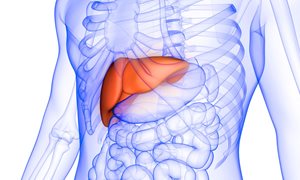
Rogier Kievit from Radboud university medical center has received a European Research Council (ERC) Starting Grant. With this grant of 1.5 million euros he will be able to shape an ambitious project over the next five years. Kievit will study cognitive dynamics in children. In one and the same person, cognitive abilities can fluctuate sharply from one moment to the next, which sometimes leads to lifelong negative consequences. More attention to the fluctuation in cognitive skills in children may counteract this effect.
Cognitive skills such as reasoning, memory and language are important in a human life. They enable us to plan, solve problems and perform complex tasks. Such cognitive skills can be measured early in life. Those outcomes also provide fairly reliable predictions of how a child will develop when it comes to an education and job. They can even be used to predict the risk of illness and death.
Variable skills
In determining such cognitive abilities, however, an essential aspect is overlooked, argues Rogier Kievit, professor of Developmental Neuroscience at the Radboudumc and Donders Institute. "Cognitive abilities can fluctuate, they are variable and changeable. Well rested, you might be able to remember a ten-digit number, while only six after a long stressful day. Moreover, we know that some people suffer more than others. For several reasons, it is important to detect and understand why some children show much more fluctuation than others."
Lifelong consequences
'Variable' children who just happen to be tested at a bad time score lower than they normally do and may end up in the wrong educational track, with lifelong consequences. One solution is to measure children more frequently, to identify both their average performance and variability. Only on the basis of these two characteristics is adequate support and monitoring of children possible.
Neurological and cognitive problems
But there is more to it. Kievit: "The variability of cognitive skills is probably also an early and strong signal ('marker') for atypical development. For instance, greater fluctuation in cognitive abilities later in life, for example, indicates a greater likelihood of rapid cognitive decline, dementia, and death. The CODEC study will look at that link between early variability and cognitive abilities, as well as the role of brain structure and links to atypical developmental profiles such as ADHD."
Interventions
It is hoped that the research will also lay the foundation for possible behavioral interventions. "Variability is very characteristic of neurodevelopmental disorders like ADHD," says Kievit. "For example, we see that effective medications for ADHD not only reduce the symptoms of the disorder, but also the cognitive variability. That points to an important role of variability in this and possibly other disorders."
Brain scan
In the CODEC study, 600 children are followed for three years. Each year, they receive three daily examinations for one week to quantify the degree of cognitive fluctuation, and examine how differences in behavioral, neural and environmental profiles may help explain this fluctuation. In addition, changes in cognitive development and any emerging mental problems such as ADHD are charted. Brain scans are also scheduled for some of the children, to examine the degree to which the anatomical structure of the brain as well as activity patterns give rise to cognitive fluctuations.
-
Want to know more about these subjects? Click on the buttons below for more news.
Related news items

Promising research on Usher syndrome
29 March 2022 Erwin van Wijk, researcher at Hearing and Genes, wants to contribute to making Usher syndrome treatable. The results so far are better than he had dared to hope. go to page
Liver tumors irradiated from inside can be followed live from outside
17 February 2022 A Dutch research team from Radboud University Medical Center has visualized the injection of radioactive microspheres during treatment of a patient with liver tumors ‘live on screen’. go to page
Micro-Cosmos helps patient unwind during hospitalization
10 February 2022 Nijmegen-based Micro-Cosmos is a start-up that makes retractable hoods to speed up the recovery of hospitalized patients. go to page
LUMO Labs and Oost NL invest in Aiosyn Investment accelerates development of artificial intelligence platform to improve diagnostics
7 February 2022 Aiosyn, a spin-off from Radboudumc, has received an investment from LUMO Labs. Oost NL is a co-investor. go to page
Improved AI will boost cancer research and cancer care Geert Litjens receives ERC Starting Grant
13 January 2022 Geert Litjens from Radboud university medical center has received a European Research Council (ERC) Starting Grant. go to page
